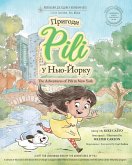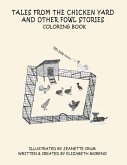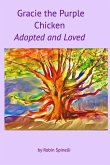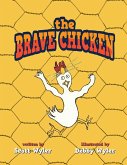The Pysanka Chicken: We Are All Born Different (UKRAINIAN EDITION) We are all born different, but sometimes you cannot see the difference.A Ukrainian tale by Lesa Melnyczuk about a small chicks' unusual start to life.Dedicated to all the children with rare conditions and rare diseases FOREWORD Professor Steve Wilton AO Director of the Perron Institute. Foundation Chair of Molecular Therapy at Murdoch University. Director of Murdoch University's Centre for Molecular Medicine and Innovative Therapeutics. It seemed strange being asked to endorse this insightful children's book about being different, family relationships and rare diseases. Many think I am different, I don't have children and I was blessed to be raised in a loving and supportive family. More importantly, as a medical researcher I have spent more than 30 years working on rare diseases, so it does make sense. The Pysanka Chicken is a beautifully illustrated story explaining to children why people are different, why some children need more help than others and the importance of a caring family. Explaining why we are all different and the concept of rare diseases to children (and many others) is very challenging. And necessary when an estimated 1 in 10 people live with one or more of the 7,000 rare diseases described to date. These are important discussions to have. The earlier the better. To start one discussion is - Should doctors be thinking of Occam's razor or zebras? Occam's razor theory isIf you have two competing ideas to explain the same effect, go for the simpler one. While teaching the diagnosis of diseases, Dr Theodore Woodward, tells student doctors to go for the most common diagnosis by saying: "When you hear hoofbeats behind you, don't expect to see a zebra" So the zebra was chosen to represent rare diseases or conditions. These are so very infrequent that many doctors may see a handful of cases in their lifetime, and this often leads to a diagnostic odyssey that may take years. Without a diagnosis there is uncertainty and no possibility of the best treatment. Everyone is different, sometimes for the better, sometimes not but we must embrace our uniqueness and individuality. I know I was smiling at many parts. This is an inspirational book to encourage readers to fight for the patients living with rare diseases.
Hinweis: Dieser Artikel kann nur an eine deutsche Lieferadresse ausgeliefert werden.
Hinweis: Dieser Artikel kann nur an eine deutsche Lieferadresse ausgeliefert werden.








